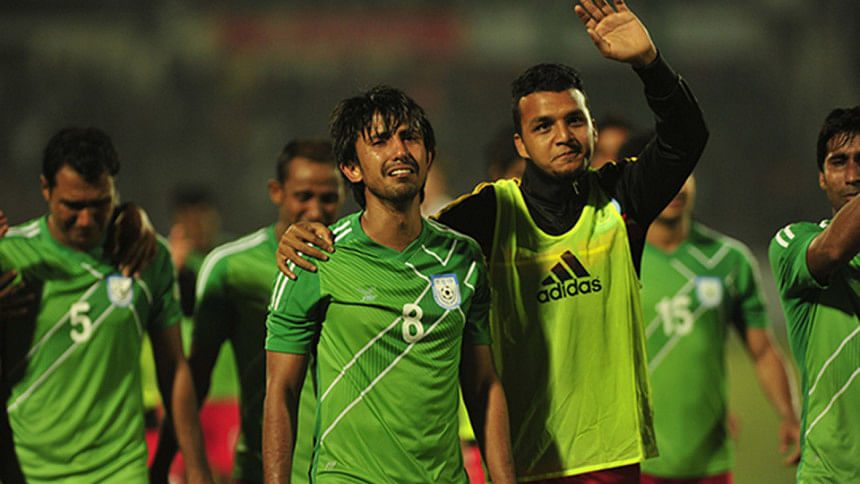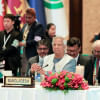Time for action, not excuses

After a goalless draw against lowly Bhutan in the Asian Cup Play-off Qualifiers on Tuesday, the Bangladeshi strikers' inability to score goals has been the talk of town. It is common to lament the finishing of the stirkers following any failure of the national team for the past decade, but it seems no steps have been taken to overcome the problem up front.
A lack of individual training sessions and commitment from players, the allowance of many foreigners in the domestic league, irregularity of competitions at the lower level, the unavailability of coaching education, frequent changing of coaches, a flawed domestic structure and the game's governing body having no football plan; these are all issues commonly brought to the fore after the national team's failure in international engagements, but they are all muffled within a few days.
A lot of finger-pointing takes place after each failure, but it appears that nobody is actually eager to address the problems and consequently the standard of football is on a downward spiral.
How can we expect goals from the players like Mohammad Abdullah and Jafar Iqbal, who have played only 16 matches at the top flight? How can we expect goals from the striking pair of Shakhawat Hossain Rony and Sohel Rana, who have hardly got a place in the starting eleven of their clubs in domestic competitions?
It is not possible to solve the dearth of quality strikers overnight, but top local coaches and club officials believe the time has come to think about a solution. They believe the Bangladesh Football Federation (BFF) and clubs will have to come forward and find a way to produce quality strikers in the near future.
“This question has not been raised for the first time. The same question was raised eight years ago when I guided the national team in Malaysia. So it is an issue which is being discussed for a long time. It is time for both the federation and clubs to sit together and take effective decisions on how to produce quality strikers through domestic competitions,” said Sheikh Russel KC coach Shafiqul Islam Manik yesterday.
“The federation and clubs can reach a consensus to give local strikers regular spaces alongside a foreign striker in a match, then the finishing ability of the local strikers may be honed,” said the former national player, adding that they hardly had any time to conduct special training for the strikers during club training as they spend most of their time with the team's combination, tactics and game plan while analysing the weak and strong points of opponents.
Arambagh KS coach Saiful Bari Titu believes there is no question about the positional sense of the strikers who are poor finishers at both the domestic and international level.
“It is up to a player whether he wants to sit on a reserve bench of a club or play for a club throughout the season. There is hardly any opportunity to hone the skills in club training but there is no initiative from the players to undergo individual training which may help them,” Titu said.
However, Titu added that there were presently a lot of distractions around footballers and the game's governing body should take an initiative to conduct a special training for upcoming strikers as well as goalkeepers during the off-season in a bid to develop quality scorers.
Abahani's football team manger Satyajit Das Rupu said that they had been giving enough opportunities to local strikers, who failed to meet the expectations of the club and that it was now the players who must take responsibility to hone their skills individually.

 For all latest news, follow The Daily Star's Google News channel.
For all latest news, follow The Daily Star's Google News channel. 








Comments